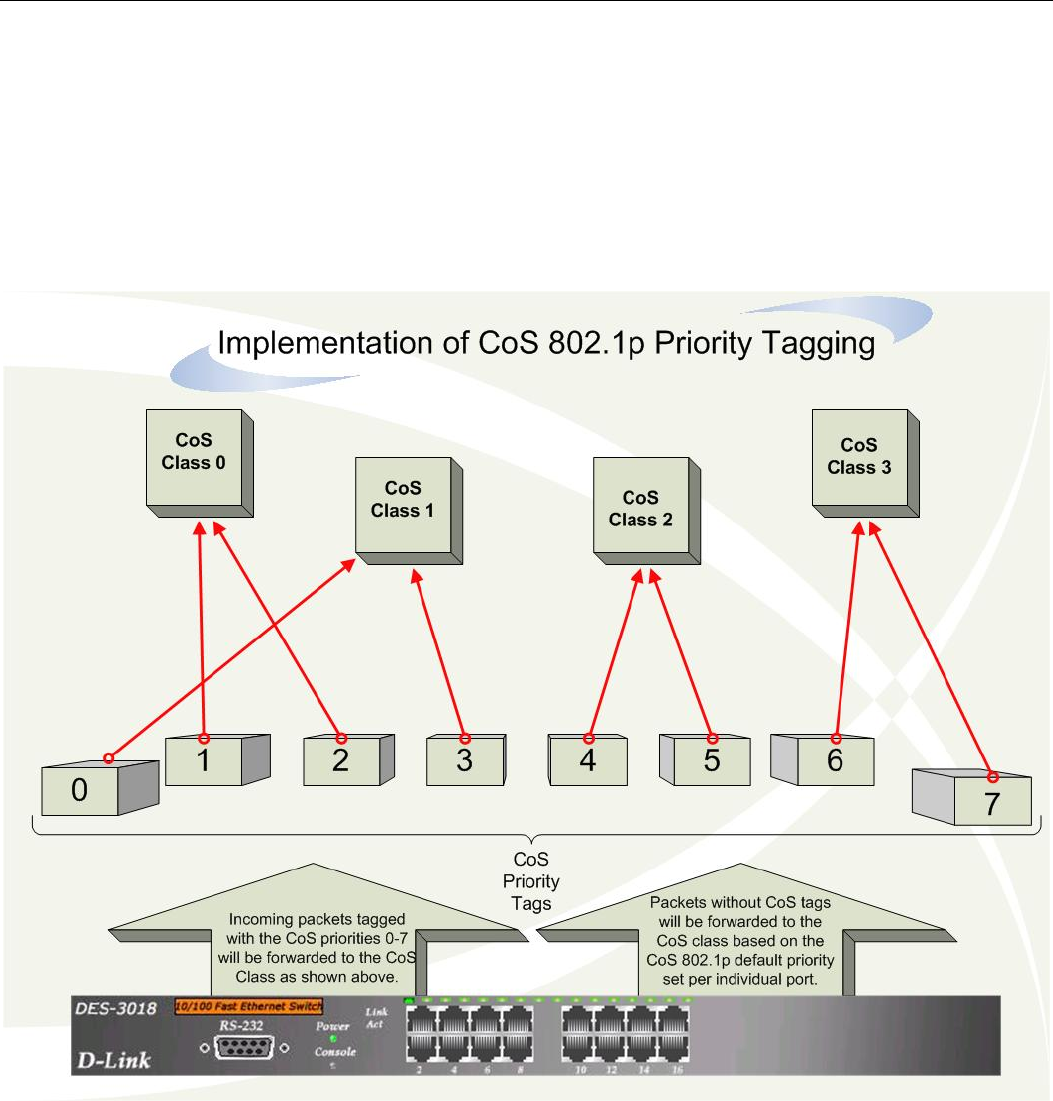
DES-3010F/DES-3010FL/DES-3010G/DES-3016/DES-3018/DES-3026 Fast Ethernet Switch Manual
110
The Advantages of CoS
CoS is an implementation of the IEEE 802.1p standard that allows network administrators a method of
reserving bandwidth for important functions that require a large bandwidth or have a high priority, such as
VoIP (voice-over Internet Protocol), web browsing applications, file server applications or video
conferencing. Not only can a larger bandwidth be created, but other less critical traffic can be limited, so
excessive bandwidth can be saved. The Switch has separate hardware queues on every physical port to
which packets from various applications can be mapped to, and, in turn prioritized. View the following map
to see how the Switch implements basic 802.1p priority queuing.
Figure 8- 1. An Example of the Default CoS Mapping on the Switch
The picture above shows the default priority setting for the Switch. Class-3 has the highest priority of the
four priority classes of service on the Switch. In order to implement CoS, the user is required to instruct the
Switch to examine the header of a packet to see if it has the proper identifying tag. Then the user may
forward these tagged packets to designated classes of service on the Switch where they will be emptied,
based on priority.
For example, if a user wishes to have a video conference between two remotely set computers. The
administrator can add priority tags to the video packets being sent out, utilizing the Access Profile
commands. Then, on the receiving end, the administrator instructs the Switch to examine packets for this
tag, acquires the tagged packets and maps them to a class queue on the Switch. Then in turn, the
administrator will set a priority for this queue so that will be emptied before any other packet is forwarded.
This results in the end user receiving all packets sent as quickly as possible, thus prioritizing the queue and
allowing for an uninterrupted stream of packets, which optimizes the use of bandwidth available for the
video conference.


















